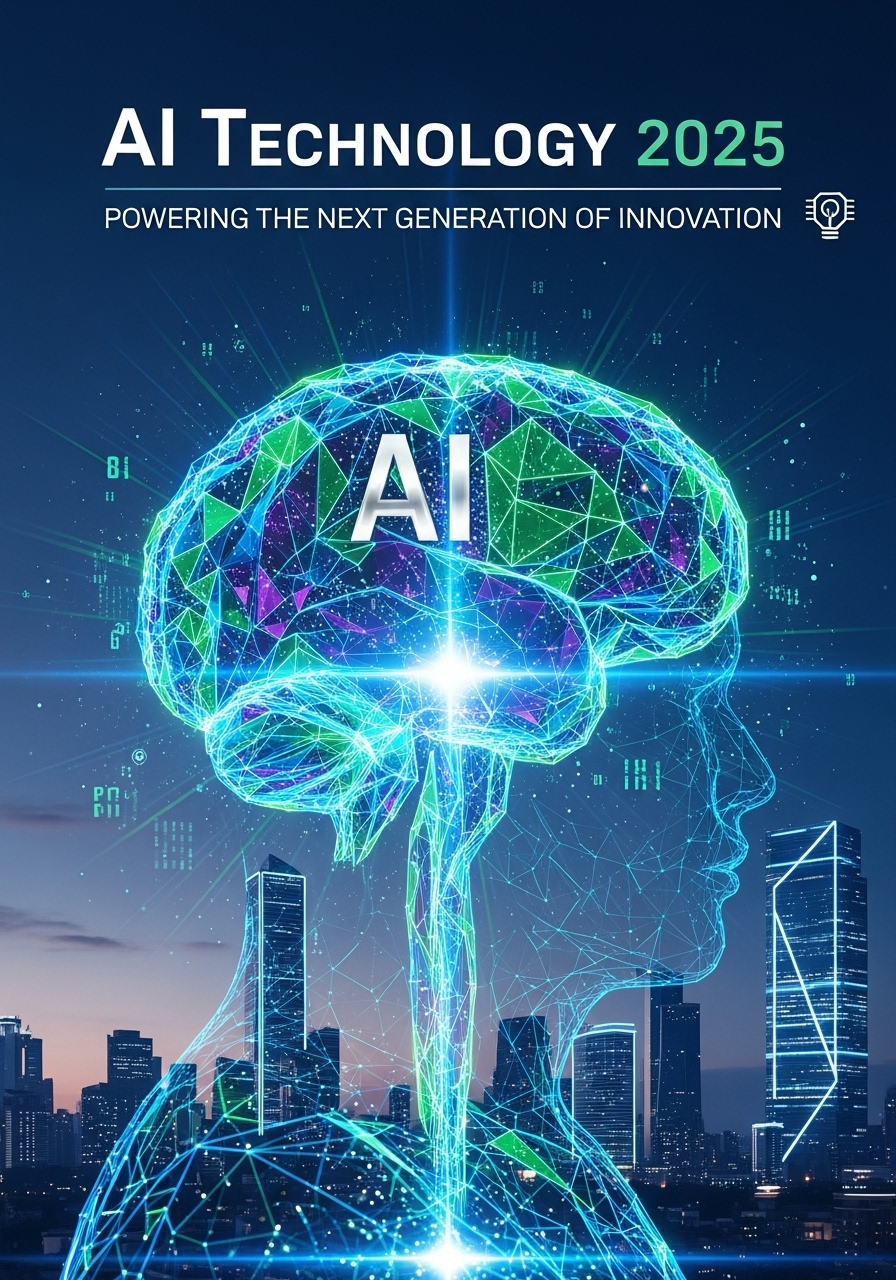AI Technology 2025: Powering the Next Generation of Innovation
Source Credit: ChatGPT. Image credit: Google AI Studio
Introduction
Artificial Intelligence (AI) has become the heart of modern technology — powering innovation across every industry.
In 2025, AI isn’t just a futuristic concept; it’s an everyday reality that drives automation, creativity, and intelligent decision-making.
From businesses to education, healthcare, and design, AI technology is reshaping the way the world works.
1. The Evolution of AI Technology
AI has evolved from simple automation into advanced systems capable of understanding, learning, and creating.
Modern AI combines machine learning, natural language processing (NLP), computer vision, and robotics to deliver smarter, more personalized experiences.
💡 Fact: Over 80% of global organizations now rely on AI in some form — from chatbots to predictive analytics.
2. AI in Business and Automation
In the business world, AI technology is driving efficiency and growth.
Companies use AI agents and automation platforms to handle data analysis, customer service, and digital marketing.
This shift allows teams to focus on strategy and creativity while AI handles repetitive work.
⚙️ Example: Tools like HubSpot AI and ChatGPT Enterprise help businesses create content, automate workflows, and analyze performance in seconds.
3. Generative AI: The Creativity Revolution
Generative AI is one of 2025’s biggest breakthroughs.
It allows users to create text, images, music, videos, and even code from simple prompts.
Designers, developers, and marketers use AI platforms like Adobe Firefly, Runway ML, and Midjourney to turn ideas into professional-quality work instantly.
🎨 Insight: Generative AI is expected to add $4.4 trillion to the global economy by 2030.
4. AI in Healthcare and Science
AI technology is revolutionizing medicine and scientific research.
Machine learning models can analyze medical data, detect diseases early, and assist in drug discovery — making healthcare faster and more precise.
In 2025, AI is also helping researchers simulate climate change, optimize renewable energy, and advance biotechnology.
🧬 Fact: AI-powered diagnostics can detect diseases with up to 97% accuracy, saving millions of lives worldwide.
5. AI in Education and Learning
Education is being redefined through AI tutoring, personalized learning, and virtual classrooms.
AI tools like ChatGPT Edu and Khanmigo adapt lessons to each learner’s pace and style, making learning more interactive and accessible for students of all ages.
📚 Pro Tip: Teachers are using AI to create quizzes, lesson plans, and student feedback automatically.
6. Ethical AI and Responsible Development
As AI becomes more powerful, ethical use is more important than ever.
Governments and tech leaders are developing AI safety standards to ensure transparency, fairness, and data protection.
Responsible AI development ensures progress benefits everyone — safely and sustainably.
🛡️ Note: The global “Ethical AI Framework 2025” encourages responsible use of algorithms to prevent bias and misuse.
7. The Future of AI Technology
The next phase of AI will bring autonomous systems, advanced robotics, and emotional intelligence.
We’ll see AI that can collaborate, predict, and adapt — becoming a trusted digital partner for individuals and businesses alike.
The future isn’t just automated — it’s intelligently connected.
🚀 Prediction: By 2030, AI will drive nearly 70% of new technological innovation across major industries.

